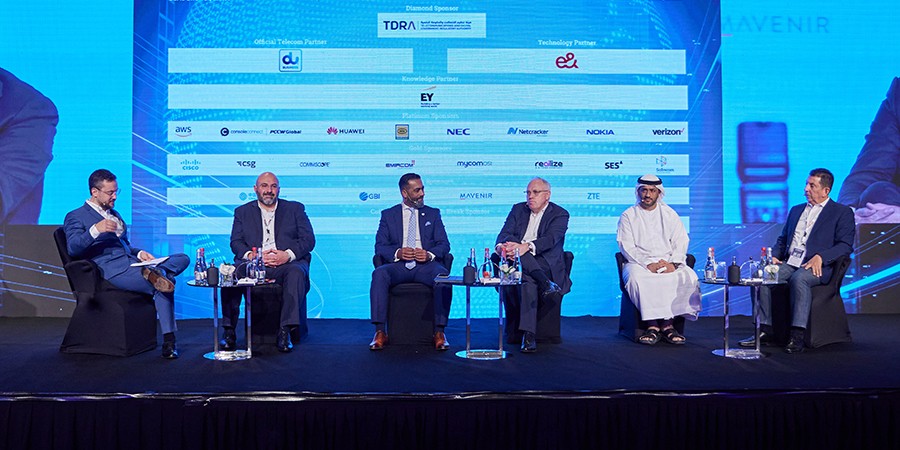The panel focused on how to measure 5G subscriber growth; services and products for subscribers; how to handle data spikes; how to utilize 5G to expand broadband penetration; the trend of fixed 5G (F5G); and 5G tower sites’ usage as edge data centers.
The panel’s moderator was Nick Gorgoglione, marketing head, Vodafone Oman, with the panelists including Jawad Abbassi, head of MENA region, GSMA; Mohamed Tantawi, managing director, MEA & Turkey service provider, Cisco Systems; Ahmad Farroukh, CEO, Smile Telecoms; Yaqoub AlZarouni, VP information security, risk management & IOC, du; and Ken Campbell, CEO, PMP Strategy.
As an opening question, Gorgoglione addressed the panelists with the following: We take 5G for granted, but why 5G? Is it worth it? Does it generate traffic, and what are you doing to get people on it?
As per Abbassi, “5G is here to stay. With 5G, by end of this year [4 years after deployment], we will reach 1 billion users, and 220 operators have launched it already.” He further stressed the importance of government spectrum policy.
Ken mentioned that 5G penetration is still at a single-digit percentage in Europe. It is taking time but will be powerful once fully deployed. “Applications will largely be driven by B2B to start,” he added.
For Farroukh, the biggest barrier to 5G in some countries is licensing due to regulatory and governmental constraints. Second is the cost of the available service and compatible device. Third, there is the legacy matter of SIM cards and network requirements.
AlZarouni also mentioned that a big challenge has been the standardization to 5G.
Tantawi added that fixed wireless access has been a challenge since 4G. Yet, the problem is whether 5G should be connected through fiber or wireless. “When we talk of 5G, we are talking about fiber speeds over wireless. Based on the use cases, answers to how investments and penetration are rolled out will be there,” AlZarouni highlighted.
As a closing statement, Abbassi reminded all, “Operators can make the future, not just see the future.”
